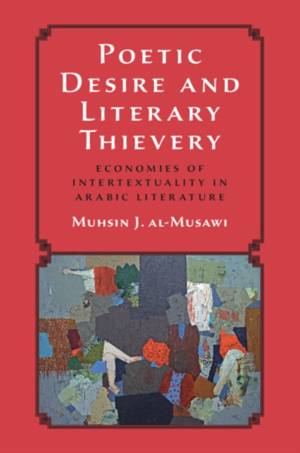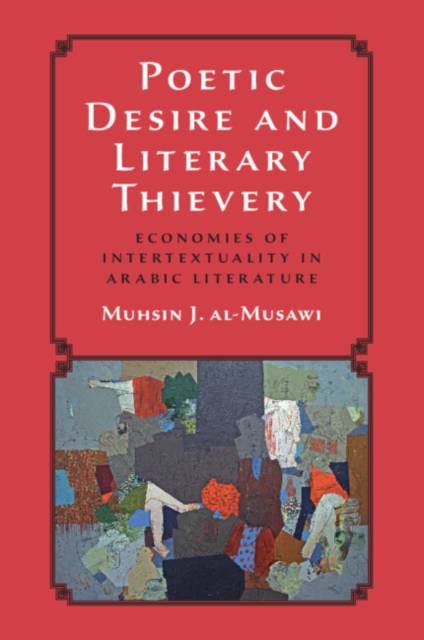
- Afhalen na 1 uur in een winkel met voorraad
- Gratis thuislevering in België vanaf € 30
- Ruim aanbod met 7 miljoen producten
- Afhalen na 1 uur in een winkel met voorraad
- Gratis thuislevering in België vanaf € 30
- Ruim aanbod met 7 miljoen producten
Zoeken
Poetic Desire and Literary Thievery
Economies of Intertextuality in Arabic Literature
Muhsin J Al-Musawi
Paperback | Engels
€ 54,95
+ 109 punten
Uitvoering
Omschrijving
How do we define plagiarism in literature? In this wide-ranging and innovative study, Muhsin J. al-Musawi examines debates surrounding literary authenticity across Arabic and Islamic culture over seven centuries. Al-Musawi argues that intertextual borrowing was driven by personal desire alongside the competitive economy of the Abbasid Islamic Empire. Here, accusations of plagiarism had wide-ranging consequences, as competition among poets and writers grew fierce, while philologists and critics served as public arbiters over controversies of alleged poetic thefts. Taking in an extensive remit of Arabic sources, from Persian writers to the poets of Andalusia and Morocco, al-Musawi extends his argument all the way to Ibrāhīm ᶜAbd al-Qādir al-Māzinī's writing in Egypt and the Iraqi poet Nāzik al-Malā՚ikah's work in the twentieth century to present 'theft' as a necessary condition of creative production in Arabic literature. As a result, this study sheds light on a vast yet understudied aspect of the Arabic literary tradition, while raising important questions surrounding the rising challenge of artificial intelligence in matters of academic integrity.
Specificaties
Betrokkenen
- Auteur(s):
- Uitgeverij:
Inhoud
- Aantal bladzijden:
- 304
- Taal:
- Engels
Eigenschappen
- Productcode (EAN):
- 9781009584562
- Verschijningsdatum:
- 19/02/2026
- Uitvoering:
- Paperback
- Formaat:
- Trade paperback (VS)
- Afmetingen:
- 152 mm x 229 mm
- Gewicht:
- 408 g

Alleen bij Standaard Boekhandel
+ 109 punten op je klantenkaart van Standaard Boekhandel
Beoordelingen
We publiceren alleen reviews die voldoen aan de voorwaarden voor reviews. Bekijk onze voorwaarden voor reviews.







